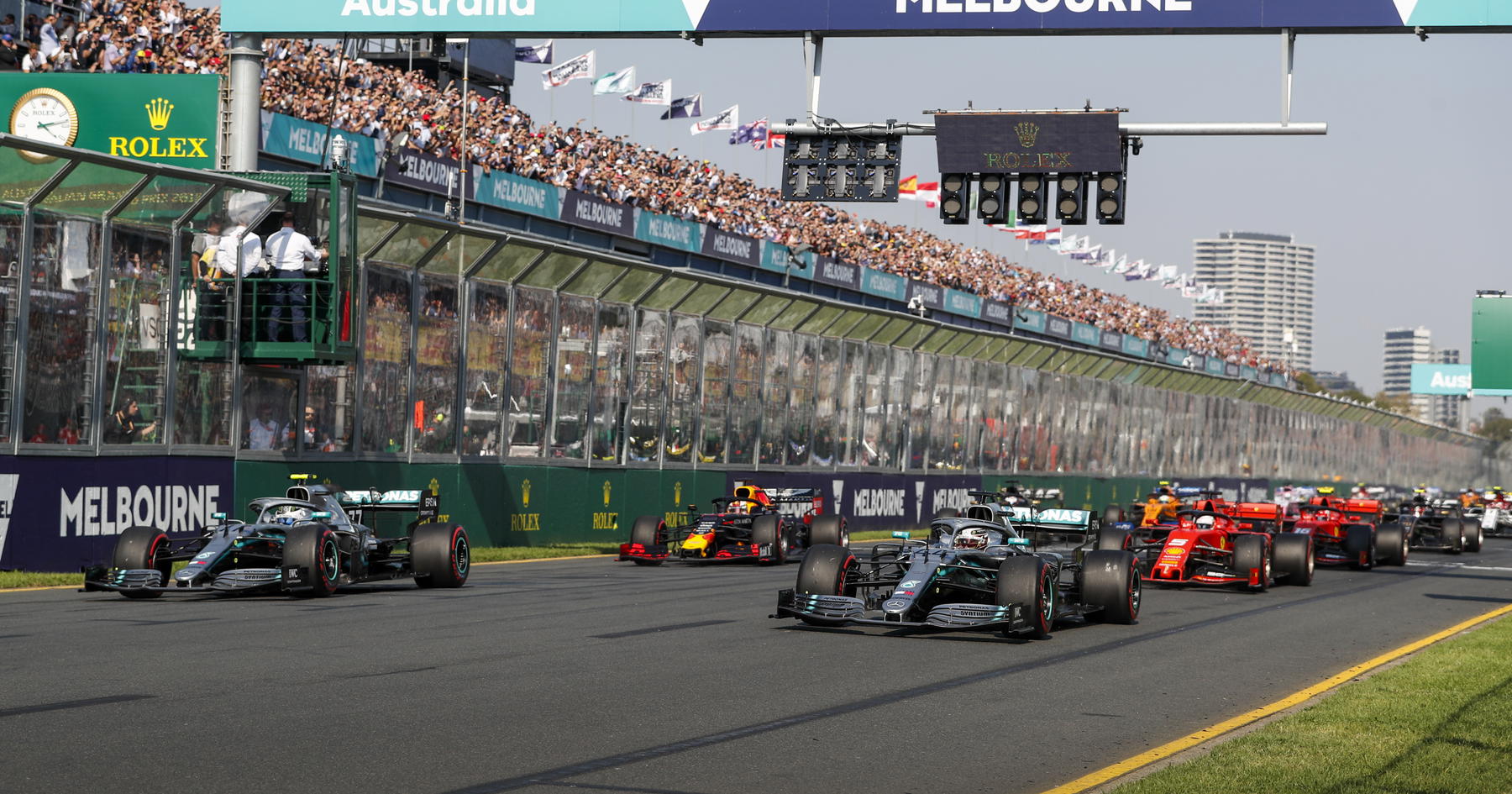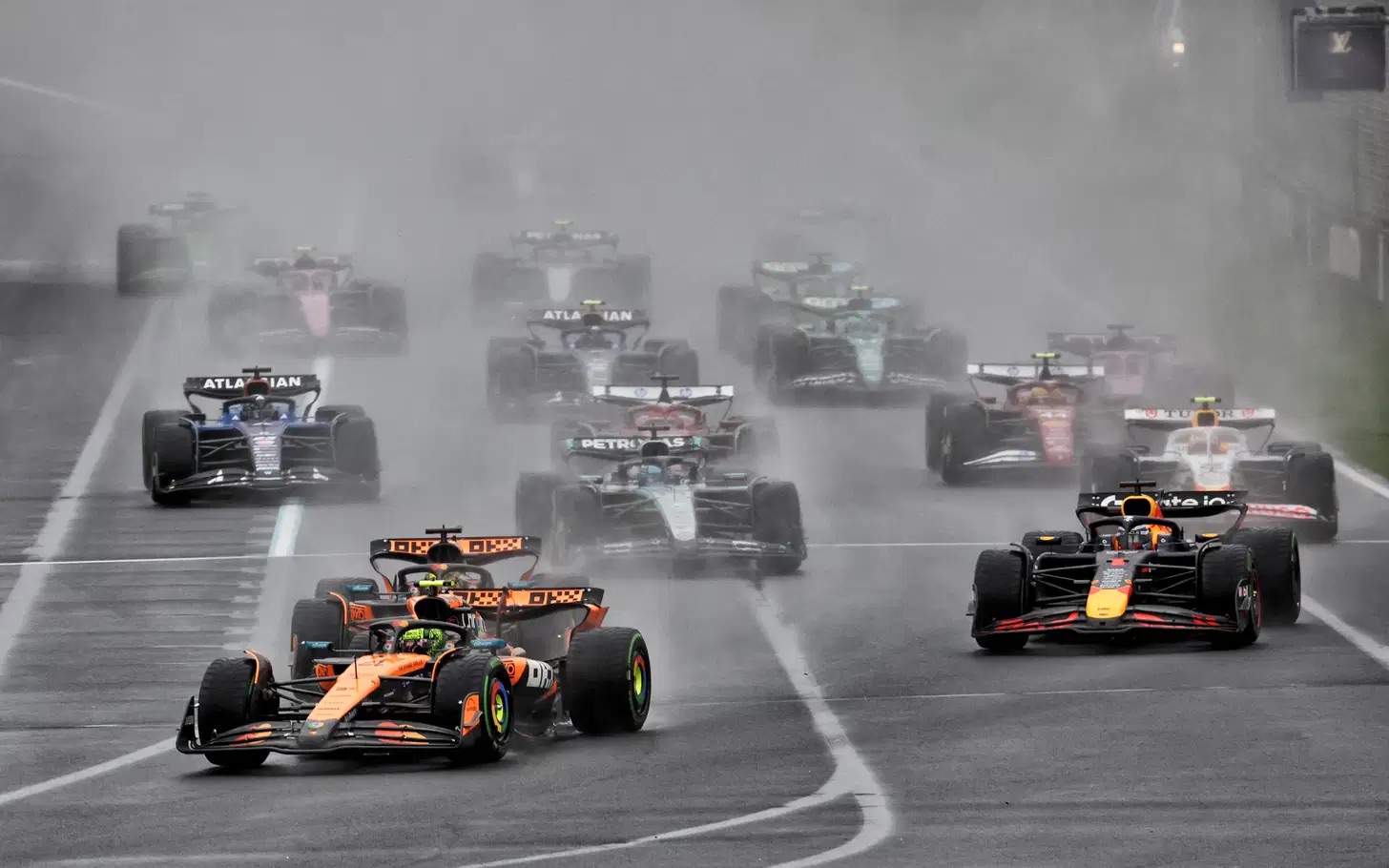FIA Backs McLaren’s Call for Reforming F1 Protest Rules Amid Red Bull Allegations
FIA President Mohammed Ben Sulayem has voiced support for McLaren CEO Zak Brown’s recent proposal aimed at tightening the rules surrounding Formula 1 protests. Brown suggests that teams should be required to submit a significant financial deposit when filing official complaints against rival outfits. The move is intended to deter frivolous or strategically motivated accusations that can damage reputations and create unnecessary distractions within the sport.
This proposal gained momentum following a controversy involving Red Bull Racing. Toward the end of last season, speculation surfaced—reportedly from German media sources—that Red Bull suspected McLaren of using an illegal tyre-cooling method. According to the claims, McLaren was supposedly injecting water into its tyres to artificially enhance their cooling performance. The theory was met with skepticism across the paddock and never backed by concrete evidence, but it nonetheless attracted media attention and stirred tension between teams.
In response to the rumors, Zak Brown made a public statement at the Miami Grand Prix in his trademark humorous fashion. He appeared in front of cameras with a water bottle labeled “tire water” and took a sip, clearly mocking the baseless accusation. However, his message had a serious undertone: Brown believes Formula 1 is at risk of being undermined by unverified claims made outside official channels.
Brown criticized the culture of lodging informal accusations without proper transparency or accountability. “The water bottle moment was lighthearted, but it reflected a deeper issue,” he said. “Over the years, we’ve seen teams throw around allegations with no formal evidence. One team in particular has made a habit of it. If a team wants to raise concerns, they should do so officially through the FIA protest system.”
Brown emphasized that the FIA already has a framework for handling formal protests, which includes the requirement to disclose the source of the complaint and pay a deposit. His call is not for new rules, but for stricter enforcement of the existing ones, and perhaps even increasing the financial barrier to ensure that any protest lodged is rooted in serious concerns rather than gamesmanship.
Echoing Brown’s sentiments, FIA President Mohammed Ben Sulayem expressed concern about the misuse of protest mechanisms in F1. While recognizing the importance of protests as a tool to ensure fair competition, he stressed that they must not become a tactical weapon used to unsettle competitors. “Zak is right to raise this issue,” said Ben Sulayem. “The system for protests must be respected. When teams bring forward complaints, they need to have credible evidence and be willing to put something on the line. Requiring a deposit reinforces the seriousness of such actions.”
The FIA already has protest deposits included in its sporting regulations, but Brown’s suggestion could lead to the adoption of higher financial requirements or more rigorous scrutiny before a protest is formally entertained. This would help prevent accusations that are purely intended to generate media pressure or disrupt rivals without any factual basis.
Although no official protest was filed by Red Bull against McLaren in the tyre-cooling incident, the mere speculation led to weeks of unnecessary headlines and public debate. Brown’s playful jab with the “tire water” bottle was meant to illustrate how even unfiled allegations can damage reputations and shift focus away from the racing.
This is not the first time Zak Brown has pushed for regulatory changes in Formula 1. He has long advocated for greater transparency, stricter rule enforcement, and improved consistency in how the sport’s rules are applied. His latest initiative, calling for a tougher stance on protests, now has the endorsement of F1’s highest authority.
If implemented, these proposed changes could help restore integrity to the protest process, minimizing off-track distractions and ensuring that teams focus more on performance than politics. Whether these reforms become official remains to be seen, but the FIA’s public backing marks a significant step toward a more disciplined and fair Formula 1 environment.


